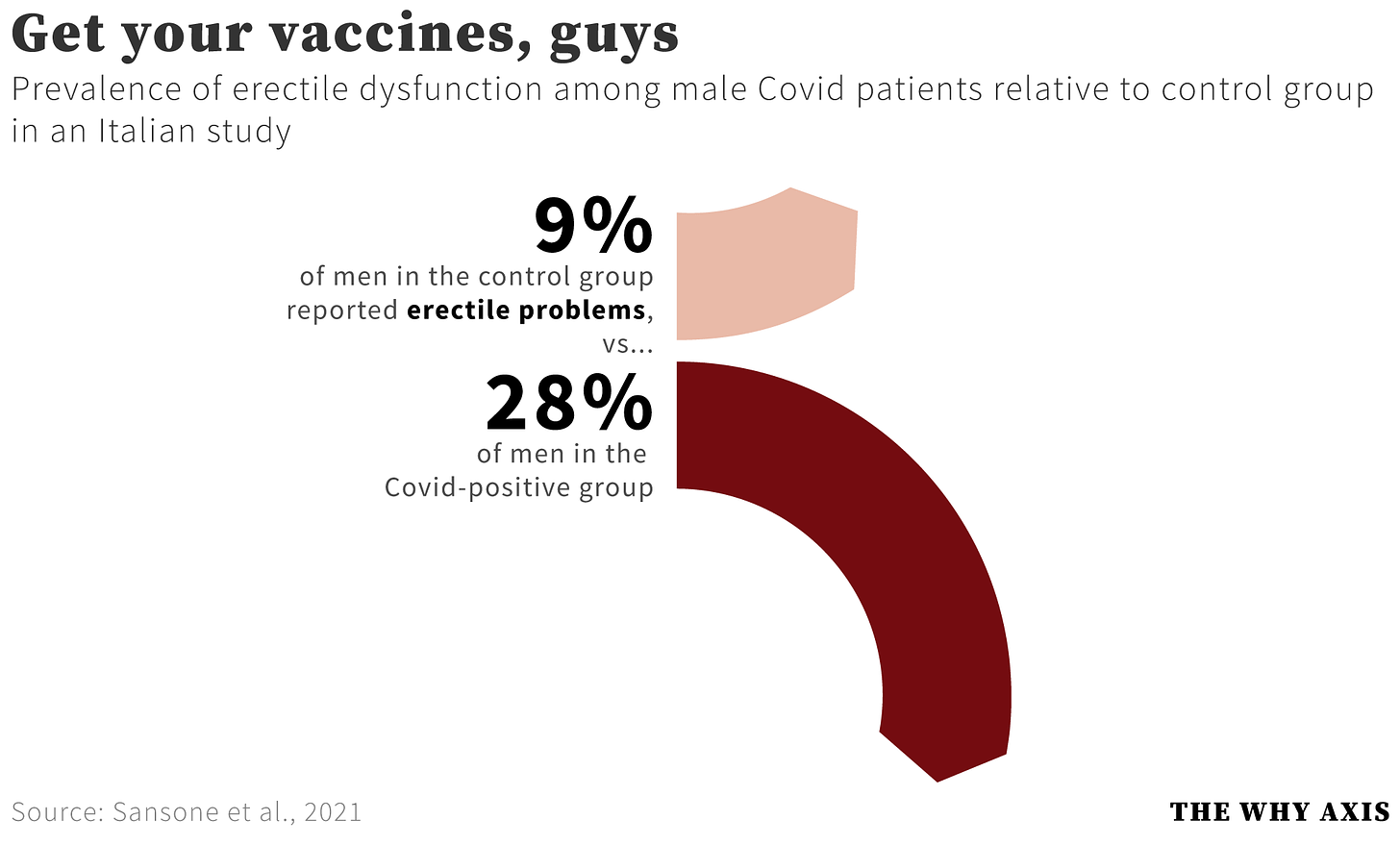Covid and impotence: the evidence firms up
Research is preliminary but it all points in the same direction
The Los Angeles Times has a story out this week on whether some men are experiencing erectile dysfunction as a side effect of Covid. The view from a clinician quoted in the piece is that there’s a good deal of anecdotal evidence and a number of plausible biological mechanisms by which Covid *could* cause impotence in men, but the relationship hasn’t been firmly established just yet.
That said, the research that’s already out there is pretty suggestive. A study published in May demonstrated “the presence of the COVID-19 virus in the penis long after the initial infection in humans.” More to the point, the penile tissue of the Covid patients examined in the study showed evidence of vascular damage — perhaps not a surprise, given the disease’s well-documented effects on the vascular system elsewhere in the body.
Here’s a microscopic look at the damage in question. The two tissue samples on the left are from patients with no history of Covid. The ones on the right are from Covid patients, and you’ll notice the pigment is lighter in those images. According to the authors, that’s a tell-tale sign of damage to the vessels in the peen.
(If you’re wondering how one goes about obtaining penile tissue, the samples were evidently collected from men getting penile prostheses to treat severe erectile dysfunction).
Another paper, published in March, finds some very preliminary evidence that impotence is much more widespread among male Covid survivors than among men with no Covid history. The study examined self-reported responses to a survey administered in Italy in April 2020. The respondents included 25 sexually active men who reported receiving a positive Covid test. The authors compared that cohort to a group of 75 non-patients who were otherwise similar in terms of sexual activity, age, BMI, and mental and physical health.
Among the healthy controls just 9 percent reported erectile problems. But the rate among Covid patients was roughly three times as high, with over a quarter saying they had trouble getting and/or keeping it up.
Now, the quality of evidence here is honestly not that great. It’s based on one small self-reported survey done in one country early on in the pandemic. It should be considered preliminary.
However, given that A) the causal mechanism here is highly plausible; B) that there is actual clinical evidence showing that causal mechanism in action; and C) that as of right now there aren’t any other, better studies that contradict these findings, I think they’re worth reporting on.
In fact, I think they could make for the kernel of an effective pro-vaccination ad campaign. It’s well-documented at this point that conservative men are especially unwilling to get vaccinated, due in large part to the steady diet of nonsense they’ve been fed by Trump, his enablers in Congress, and the toxic disinformation ecosystem that’s built up around them.
Here’s another fun fact about that demographic: many of them are already anxious about their manhood, according to an analysis conducted in 2018. That study found that Google searches for things like “erectile dysfunction,” “Viagra,” and “penis size” were correlated with support for Trump in 2016. This same fragile masculinity was correlated with support for House Republican candidates at the congressional district level in 2018.
Male Republican vaccine skeptics, in other words, are already disproportionately likely to fret over the size and performance of their peens. That suggests they may be uniquely receptive to a public health advertising blitz focused on Covid’s threat to their junk.
Subscribe to The Why Axis
Making data fun again














